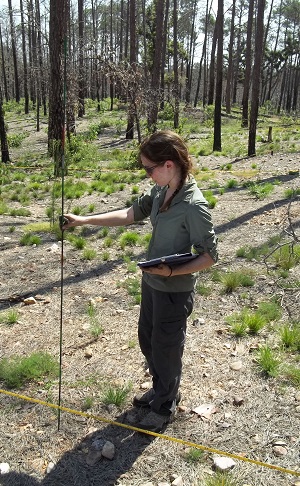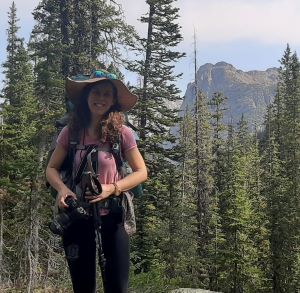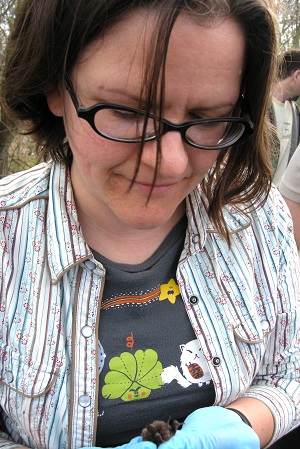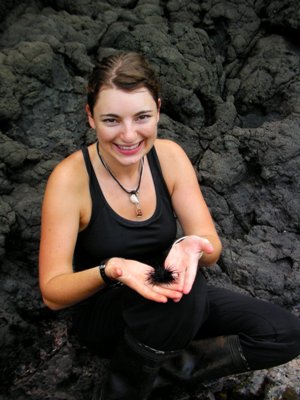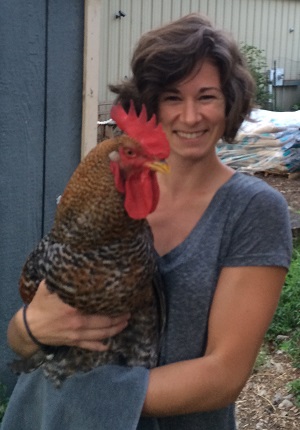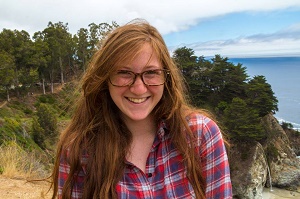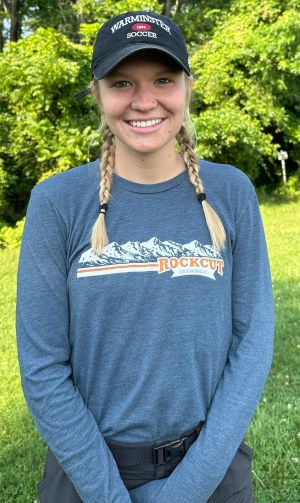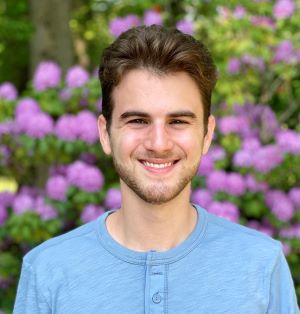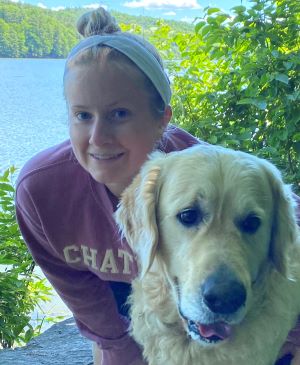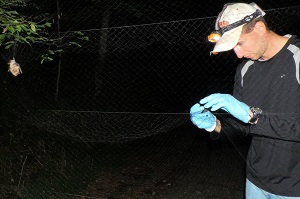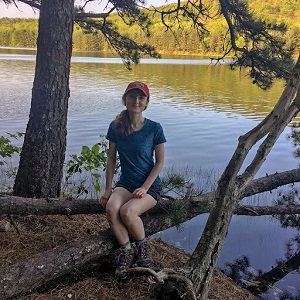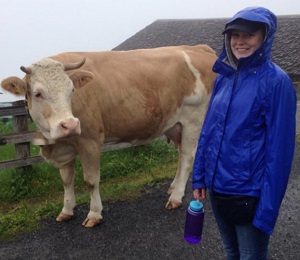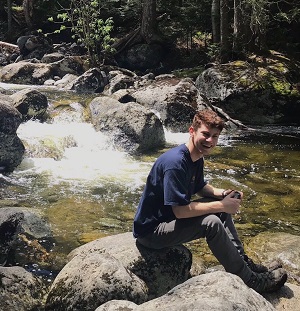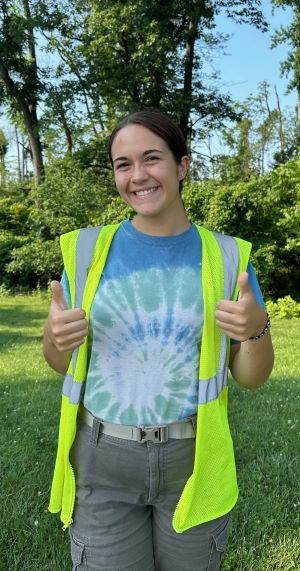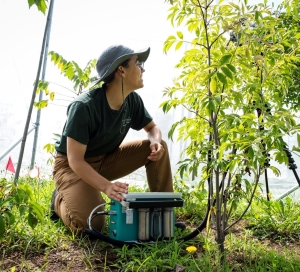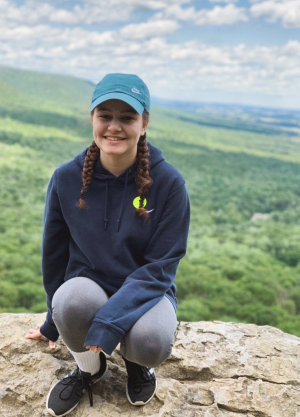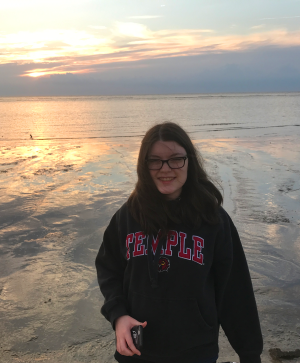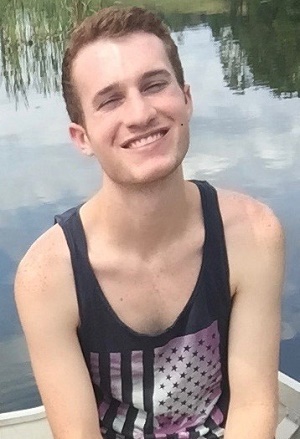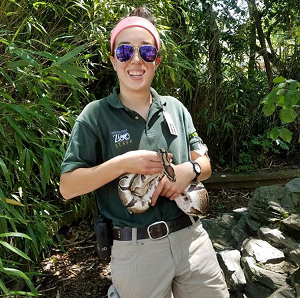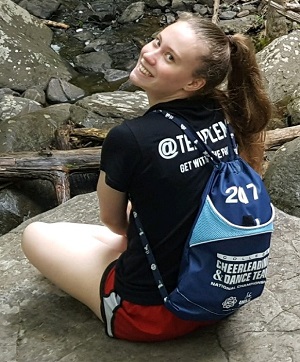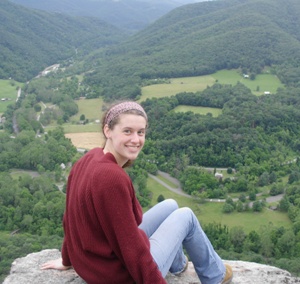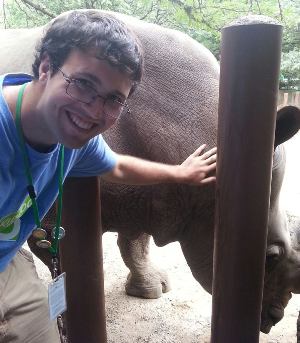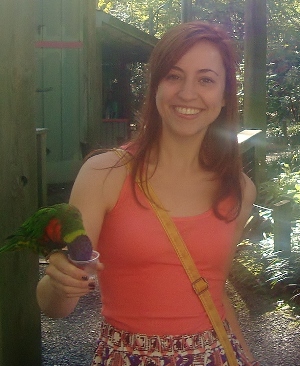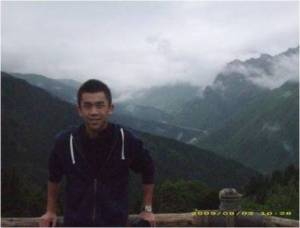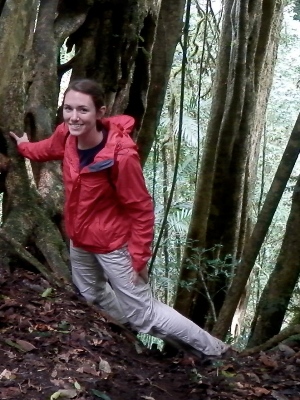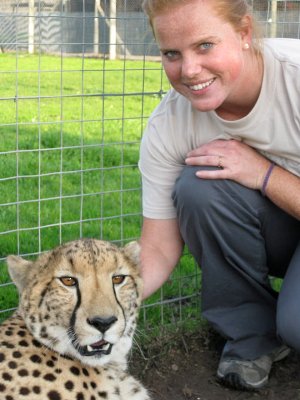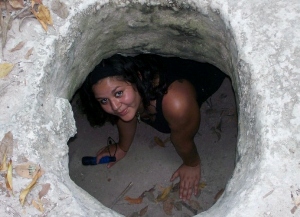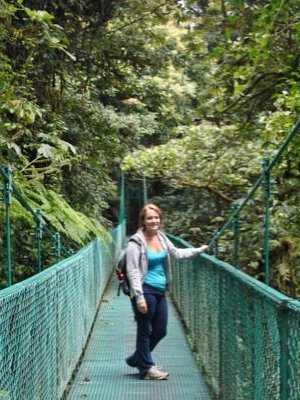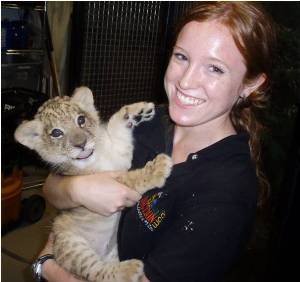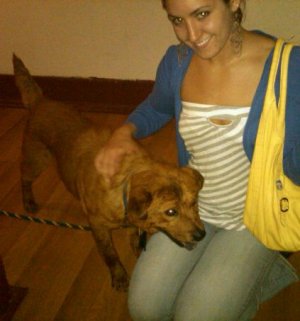(click here for current lab members)
Recent Lab Alumni
Postdoctoral researchers
Dr. Emily Booth is a plant ecologist specializing in fire ecology. She received her Ph.D. in 2017 from the University of Texas at Austin and her M.S. in 2011 from a joint program between Northwestern University and the Chicago Botanic Garden. She is broadly interested in bridging the gap between research science and land management, and has worked to this end in many ecosystem types including desert, savanna and forest. Over the course of her graduate work, she investigated plant-pollinator interactions, the potential impacts of climate change on plant species of conservation interest, and the ways in which management actions, soil types, and burn severity shape post-wildfire plant community recovery trajectories. Through the Sewall Lab, she worked with the Forestry department at Fort Indiantown Gap to: 1) assess the effectiveness of prescribed burns to meet objectives of fuel consumption and woody plant community composition; 2) study the effects of thinning on tree growth rates; and 3) provide recommendations on fire effects monitoring protocols and appropriate fire regimes for management goals. She conducted research in the lab from 2017 to 2022, and has since taken a career position as an invasive plant biologist with the National Park Service.
Dr. Emily Le Sage is a conservation biologist interested in emerging infectious diseases associated with wildlife population declines. Her PhD research at Washington State University focused on a group of viral pathogens of ectothermic vertebrates, ranaviruses, known to cause mass mortality events in larval amphibians in North America. By integrating physiology and disease ecology, she found that an anthropogenic stressor, road salt runoff, increased the severity of ranavirus epidemics in the northeastern United States. Specifically, the osmoregulatory demands of sublethal salinity concentrations found in roadside habitats reduced feeding behavior, growth, and immune function of larval wood frogs, which ultimately led to greater transmission and mortality rates at the population level. In the same vein, her postdoc research at Vanderbilt University examined the carry-over effects of early life stressors on amphibian immunity. In a collaborative DoD funded project, she found that early life exposure to either predicted future temperatures or a rapidly drying pond had long-lasting effects on leopard frog pathogen defenses and susceptibility to infection from a chytrid pathogen, Batrachochytrium dendrobatidis (Bd). In an effort to better predict climate change effects on chytridiomycosis, the disease caused by Bd, she is currently integrating seasonal rhythms of host, pathogen, and microbiome. For updates on this ongoing work, check her website (https://emilymhall88.wixsite.com/mysite). Scaling up from the organismal level, her project as a postdoc in the Sewall Lab was to study long-term population trajectories of hibernating bat species and evaluate whether management activities can reduce the impact of white nose syndrome, a fungal disease caused by Pseudogymnoascus destructans. She conducted research in the lab from 2021 to 2022, and has since taken a tenure-track faculty position at Skidmore College in New York.
Dr. Lisa Powers worked in the lab as a postdoctoral research fellow specializing in bat reproduction and conservation. Lisa received her Ph.D. in Ecology, Evolution and Conservation Biology at the University of Illinois at Urbana-Champaign in 2016. Her dissertation investigated effects of white-nose syndrome and annual climate variation on reproduction, survival and population growth rates in North American cave-hibernating bat species. Her dissertation incorporated a wide range of field and laboratory techniques, including mark-recapture, assessment of reproduction and post-natal growth, histology, PCR, and population growth modeling to identify trends in reproduction and survival. While in the Sewall lab from 2016-2019, she studied changes in bat populations since the onset of white-nose syndrome and the impact of military training operations and land management on bat populations in varied landscapes at the Fort Indiantown Gap National Guard Training Center in central Pennsylvania. After completing her project in the lab, she has moved on to another postdoctoral position with the U.S. Forest Service.
Doctoral student
Kim Reuter graduated with her doctorate in summer of 2015. Kim’s dissertation focused on the socio-economic and resource management aspects of conservation biology, specifically the role of hunting and commercial sale of wildlife species (the bushmeat trade), processes underlying habitat degradation and deforestation in Madagascar, and the effect of habitat degradation on mutualistic interactions. Kim was the winner of a National Science Foundation Graduate Research Fellowship and a National Science Foundation Graduate Research Opportunities Worldwide Fellowship. She has also won several external competitive grants in support of her research, including from the Explorer’s Club, the Ding Darling Wildlife Society, and the American Society of Primatologists. She has published or submitted several articles, and one – a study of lemur ownership within Madagascar that was completed as part of her dissertation – attracted substantial press coverage around the globe. In the past, Kim has completed research concerning marine invertebrate spawning, effects of ocean acidification on broadcast spawners, and has even worked as a field assistant in British Columbia, West Africa, and Madagascar. She moved directly from her PhD into a senior management position with Conservation International’s Nairobi office directing activities relating to natural capital accounting, ecosystem evaluation, and wildlife trafficking. She is now the Chief Executive Officer of the non-profit group Franklin Scholars. For more information, see Kim’s website.
Masters students
Kelly Franklin obtained her Biology Masters degree in 2020 in the lab, and worked afterward as a technician in the lab. She previously graduated from Temple with her undergraduate degree in Biology, her second degree after completing a Bachelor’s Degree in Illustration and working as a freelance artist for multiple years. Kelly received a college award for academic excellence during her undergraduate program, and following her graduate work, she obtained a fellowship from the American Academy for the Advancement of Science. Kelly hopes to utilize her artistic ability to advance public understanding of conservation efforts and the importance of global biodiversity. She joined the Sewall lab as an undergraduate researcher in the Fall of 2017 and worked on research on white-nose syndrome (WNS) in little brown bats Myotis lucifugus. Her focus within this research has been examining the spread of pathogenic Pseudogymnoascus destructans fungi through the wing membrane of WNS-infected little brown bats throughout the hibernation period. She recently began a job working for the scientific journal Science.
Carrie Paul began in the lab as an affiliate in 2014, then worked as a technician, and later as a Masters student beginning in 2016. She received her undergraduate degree in environmental planning and a certificate in environmental geomatics in 2013. Carrie joined the lab initially to merge her knowledge of field ecology and GIS to better visualize and analyze trends in conservation ecology. In her Masters research, she evaluated the effects of forest management on forest community structure and bat communities at Fort Indiantown Gap National Guard Training Center in central Pennsylvania. She graduated with her Masters of Science in 2018, and she is now in a state position studying wildlife ecology and management.
Technicians
Kelly Meinert graduated from Temple University with a B.S. in Biology in the spring of 2024. Prior to her involvement with the Sewall Lab, Kelly spent the first three years of her undergraduate career helping to further research efforts within the Cordes Lab at Temple University by conducting various DNA analyses of newly discovered deep-sea species. Looking to gain more field experience, she joined the Sewall Lab in the summer of 2023 as an Ambler Field Station intern through Temple’s Undergraduate Research Program. In this role, she contributed data collection fieldwork to projects studying the invasive spotted lanternfly (Lycorma delicatula) and forest recovery at Temple Ambler following a tornado in 2021. Kelly has interests in invasion, disturbance, and plant ecology, with her independent research mainly focused on how the tornado at Temple Ambler may have facilitated non-native plant invasions into a previously undisturbed older-growth forest. Since graduating, Kelly has been working as a research technician on the spotted lanternfly project while she explores her research interests and graduate school opportunities. She has aspirations of pursuing either a master’s and/or PhD to continue her passion for the study of both terrestrial and aquatic ecosystems in our rapidly changing world.
Jack Collins is a senior majoring in biology at Temple University. Jack is interested in pursuing a career in entomology studying the behavior and ecology of agricultural pests. Non-native animals can spread to new areas rapidly due to the interconnectedness of the modern world and ensuring the security of food production is highly important. Jack has had a passion for nature and its creatures since he was very young and aims to apply his passion to helping others. Jack joined the Sewall lab in the summer of 2021 and assisted in the research conducted on the Spotted Lanternfly at the Temple Ambler satellite campus. After his graduation from Temple University in spring of 2022, he continued on as a technician on the spotted lanternfly project through the end of 2022. He has been accepted to graduate studies in Entomology at Rutgers University, where he intends to acquire higher entomology degrees and conduct further research on insect species.
Lindsey Hoover participated in spotted lanternfly research in the lab, first as an undergraduate student researcher and after graduation as a technician. She is interested in disease ecology and the effects of disease on populations, species, and communities. Her enthusiasm for ecology originated from being raised in a wooded area of northeastern Pennsylvania. This led to a specific interest in the relationship between disease and a wide range of organisms. She joined the Sewall lab in the summer of 2021 through the College of Science and Technology’s Undergraduate Research Program and assisted in Spotted Lanternfly Research at the Temple Ambler Field Station. After graduation from Temple University in spring of 2022, Lindsey continued on as a technician on the spotted lanternfly project through the end of 2022. Her future plans include attending graduate school and furthering her research experience.
Chris Hauer joined the Sewall Lab as a research technician in December 2015. His research interests include understanding the impacts of habitat fragmentation and disease on the ecology and conservation of wildlife populations, particularly rodents and bats. Chris received a B.S. in Biology from Albright College and a M.S. in Biology from East Stroudsburg University. His graduate research examined changes in the community composition and distribution of bats in the Delaware Water Gap National Recreation Area following the emergence of white-nose syndrome. Using the results of mist netting and acoustic surveys, as well as emergence surveys of summer maternity roosts, Chris worked to develop a preliminary bat management plan for the National Park Service. Prior to his position at Temple University, Chris worked for an environmental consulting company conducting surveys for federally-endangered and threatened bat species throughout Pennsylvania and New Jersey. He also served as an Adjunct Biology Instructor at Alvernia University and Delaware Valley University where he taught courses in General Biology, Human Biology, and Human Anatomy and Physiology. Chris left the lab after four years in 2019 to begin a research position at Fort Indiantown Gap National Guard Training Center, a military training area in central Pennsylvania, where he is studying mammal ecology and management.
Kaitlyn Thomas graduated in 2020 from Temple in Biology with a minor in Public Health. She worked in the lab as an undergraduate student and later as a technician. She is interested in infectious disease ecology, more specifically in reference to diseases of wildlife and zoonoses. Kaitlyn joined the Sewall lab in the winter of 2019 through the Undergraduate Research Program and continued in the lab as a Francis Velay Fellow and through the Biology Department’s Distinction program. In the lab, Kaitlyn has focused on studying trends in infection of Pennsylvania’s bats. Kaitlyn plans on attending graduate school in the field of disease ecology and hopes to pursue a career in research.
Alice Puchalsky participated in the Sewall Lab first as an undergraduate researcher, and later as a technician. While a student at Temple, she studied Environmental Science. She joined the Sewall lab in the summer of 2016 as a Frances Velay Fellow, and then participated in several research projects in the lab. She first worked to understand torpor patterns in bats affected by the disease white-nose syndrome in bats. Later she began to assess the effects of prescribed fires – a management tool for maintaining fire-prone ecosystems in their natural state – on Pennsylvania’s butterflies and land snails in grassland and forest habitats at Fort Indiantown Gap National Guard Training Center in central Pennsylvania. Alice completed her projects in the lab, won a National Science Foundation Graduate Fellowship, and began a doctoral program at Michigan State University in 2019.
Daniel Taratut was part of the lab for 3.5 years, first as an undergraduate student at Temple University majoring in Biology and later as a research technician. Aside from his passion for wildlife conservation and ecosystem ecology, Daniel is interested in pursuing mycological studies to better understand the complex fungal world humans live beside, and how fungi provide crucial links between various organisms in our ever-changing world. His curiosity for the adaptations and multiple interactions of fungi stems from a young age when he learned about certain fungi controlling and consuming insects internally through chemical interferences. From then on, he knew he wanted to understand the unique life cycle of nature’s most successful and efficient recyclers. Daniel joined the Sewall lab in the winter of 2019 and assisted research studying white nose syndrome in North American bat populations. He won a Diamond Research Scholar award to support his ongoing research. After graduation, he continued in the Sewall Lab as a technician studying the invasion of the forest pest, the spotted lanternfly and its impacts on forest ecology. He continued on to a Masters degree program at the Commonwealth University of Pennsylvania, where he is studying how fungal pathogens affect the spotted lanternfly, and why fungal attacks on wildlife are rising worldwide.
Undergraduate students
Sarah Bucher majored in Biology. She has always loved being outdoors and learning about ecology and the environment, but first discovered her strong interest in research in Ecology in her junior year. Sarah is generally interested in Pathology, the study of disease, which drew her to the Sewall lab to work on understanding White-Nose Syndrome infection in Northern American bat populations. This summer in 2024, she has been assisting in analyzing ultraviolet images of bats’ wings to quantify the percentage of infection. Her independent project is focused on understanding the differences in the severity of infection based on sex of hibernating bats in response to White-Nose Syndrome. She is also a member of Temple’s Biology Society, Temple’s chapter of Scientista, a community for women in Science, Technology, Engineering, Mathematics, and Medicine (STEMM), and Temple’s chapter of Strategies for Ecology, Education, Diversity, and Sustainability (SEEDS). Sarah graduated in spring of 2025, and is now studying in a pathologists’ assistant master’s program at Touro University in Manhattan.
Grace Hodges is a senior at Temple University pursuing a B.S. in Ecology, Evolution, and Biodiversity. They first discovered their passion for ecology while wading in the creek in their hometown. They developed particular interests in forest, disturbance, and invasion ecology throughout their studies and employment. During Grace’s undergraduate career, they have worked as a field technician monitoring the impacts of stormwater runoff on freshwater creek systems at the College of Wooster and the recovery of a windthrow disturbed forest with the Temple Ambler Field Station. Grace joined the Sewall lab in 2023 as a field technician, helping study the impact of the Spotted Lanternfly (Lycorma delicatula) on native and non-native eastern deciduous forest species plants. In late 2023, Grace was awarded the Creative Arts, Research and Scholarship (CARAS) award, a grant dedicated to students contributing to advancing their field of study. Mentored by Dr. Sewall & Dr. Mariana Bonfim, Grace continued their work investigating trends of adult L. delicatula populations by sex on Ailanthus altissima treated with the systemic insecticide dinotefuran. They graduated in spring of 2025 and hope to continue their research and studies within forest ecology through graduate school, with the goal of applying their knowledge to land conservation and management.
Julie Oliveti graduated from Temple University, majoring in Environmental Science with a concentration in Applied Ecology. She has always had a passionate interest in animals and ecology and has been aspiring toward a career in the field of environmental science since she was in elementary school. She is particularly interested in furthering conservation efforts for species facing extinction due to climate change and its related effects. In the summer of 2022, she joined the Sewall Lab through Temple University’s Undergraduate Research Program to assist in studying the impacts of white-nose syndrome on affected North American bat species and exploring potential methods of treatment and conservation. She is also a member of Temple’s Society of Environmental Engineers and Scientists, and the director of professional relations for Temple University’s chapter of Scientista, a community-building foundation for women in Science, Technology, Engineering, Mathematics, and Medicine (STEMM). Since graduation, she has been working as a biologist with the Pennsylvania Game Commission. She hopes to gain field experience abroad before attending graduate school to obtain a Masters degree and continue her involvement in ecology and conservation research.
Laura Walker graduated in the spring of 2023 with a B.S. in Biology. She has always enjoyed learning about animals and how they interact with the environment, and became interested in research after assisting her ecology professor at Bucks County Community College with a project aimed at determining the stream health of a local tributary. She joined the Sewall Lab in the fall 2022 semester as part of Temple’s Undergraduate Research Program and has helped with image analysis of bat wings for projects related to White-Nose Syndrome. During her time with the lab, she worked on an independent project with the goal of examining the interspecific differences in three bat species affected by the disease. She is excited to continue to be a part of the Sewall Lab by helping to analyze more images in the summer of 2023. As for her future, she is interested in a potential career related to wildlife management where she can meaningfully contribute to ongoing conservation efforts. She loves to be part of teams where everyone is driven to protect endangered species, which is what makes her time with the lab one of the highlights of her academic career.
Tyler Forst studied Environmental Science with a minor in Biology while at Temple. He is interested in conservation ecology and finding ways to help mitigate issues that arise from climate change. His passion for ecology began after traveling to Ecuador and observing the concentration of biodiversity within the country. Since then he has been committed to preserving of at-risk communities. He joined the lab in the summer of 2016 through the College of Science and Technology’s Undergraduate Research Program, and assisted the research of behavioral interactions of North American bats infected with white-nose syndrome. Along with his research involvement, he participated in volunteer programs catered towards encouraging youth involvement in STEM related fields. He graduated in 2018 and plans on attending graduate school in the field of environmental health and ecology.
Lea Garibaldi Environmental Science while at Temple University. Lea is interested in Conservation Biology and learning about human impacts as well as ecological changes on different species. She became interested in conservation biology while working as an intern at the Philadelphia Zoo. She continues to work there in the Conservation Education Department through their Public and Zoo on Wheels Programs. She joined Professor Sewall’s lab through Temple’s Undergraduate Research Program in the the Fall of 2017 where she assists in the research of North American bats infected with White Nose Syndrome. She graduated in 2018, and hopes to continue researching wildlife and educating others on the importance of all creatures.
Hannah Moore studied Biology while at Temple University. Hannah is interested in studying human impacts on biodiversity as well as animal diseases. Her interest in these topics arose during her time spent volunteering at the Philadelphia Zoo in the education department. Her passion for these topics continued to grow during her time working at the Elmwood Park Zoo, where she participated in daily feedings of the giraffes, bison, and birds. She joined Professor Sewall’s lab in the Summer of 2018 and assisted in research studying White Nose Syndrome in North American bats. Along with her undergraduate studies, Hannah was also a member of the Temple University Diamond Gems Dance Team. She graduated in 2019, and plans on pursuing a Master’s degree in Biology or Ecology.
Sarah Munson studied mathematics while at Temple University. She has a particular interest in applying mathematics to studies of the environment in hopes of improving awareness of understudied environmental issues. She began her work with Dr. Sewall during the spring of 2014. Her primary focus is improving theoretical and empirical understanding of ecological interaction networks, and in particular plant-pollinator mutualistic networks. Sarah received Montgomery County Community College Mathematics Excellence Award in May 2012 along with a citation from Matthew Bradford for her achievements. At Temple University, Sarah participated in the honors program and has worked as a math tutor. Sarah graduated with her bachelors of science in mathematics with a minor in environmental studies in the fall of 2014. She plans to attend graduate school in hopes of doing research combining both of her passions – math and the environment.
Kevin Carpenter pursued a dual-degree in Environmental Science and Biology while at Temple. Previously, Kevin worked at the Philadelphia Zoological Garden where he conducted a behavioral study on their captive Waldrapp Ibises. He joined the lab in the spring of 2014 as part of the Undergraduate Research Program. While in the lab, Kevin conducted research with Dr. Sewall regarding historic bat populations in the northeastern United States. The purpose of this project is to establish a nearly century-long description of the population trends of bats within the state of Pennsylvania. While at Temple, Kevin won the Grand Prize Award of the Temple Library Prize for Sustainability and the Environment. conservation biology and ecology. After graduating, Kevin went on to a Masters degree program at the University of Nebraska, where he is studying applied ecology.
Shannon McGinnis graduated in 2014 from Temple University with a degree in Biology and a minor in Public Health. She has conducted research with Dr. Sewall on emerging fungal pathogens of wildlife. She won a number of prestigious awards during her time at Temple, including the Diamond Award, the highest recognition given to a Temple University undergraduate student, in recognition of her superior leadership, academic achievement, service to the University, and impact on the community. In addition, Shannon was a Grand Prize winner of the Temple Library Prize on Sustainability and the Environment, one of the university’s top undergraduate research awards, for her studies of fungal pathogens of wildlife. She also won a Temple Diamond Research Scholarship (which supported her research efforts) and won top honors for her student presentation at the Global Temple Symposium on International Student Research. She has participated in the Temple Undergraduate Research Program and presented at a the annual national conference of the American Society of Mammalogists. She is in the final stages of preparing a manuscript for submission to a scientific journal. Shannon is currently pursuing a doctoral degree at Temple University’s College of Public Health.
Jason Sing has a particular interest in conservation biology, and conducted research with Dr. Sewall on the response of bat populations in the eastern United States to the onset of white-nose syndrome, a fungal disease affecting hibernating bats. The purpose of the research was to understand the extent of varying climatic and environmental variables in influencing the response that bat populations to this emerging disease. Additionally, Jason has a passion for the health sciences. He is a member of the Golden Key National Honor Society, made the Deans List in 2008-2009, 2009-2010, 2010-2011, 2011-2012, and 2012-2013, and was a Peer-Tutor in Chemistry. He also was awarded the Curcillo Award for academic excellence in Biology, which recognizes outstanding academic achievement among biology undergraduate students at Temple University. Jason graduated from Temple University in 2013, and in fall of 2014 began his studies in dental school.
Stephen Chen graduated from Temple University in December of 2013. He studied Biology at Temple and is now a prospective student for Dental School, which he hopes to begin in the year of 2014. He joined the lab in the spring of 2013 to conduct research with Dr. Sewall on on the response of bat populations in the eastern United States to the onset of white-nose syndrome. The goal is to understand the different climatic and other environmental variables that influence bat population responses to the emerging disease. Even though this is his first research-related experience, he is also interested in other fields related to conservation biology. Stephen’s interest in conservation biology was sparked through his travels in Southern China, where he witnessed numerous devastating effects of deforestation on local communities due to China’s economic boom. Stephen was recently accepted into the International Scholar Laureate Program as well as the Golden Key International Honor Society. After graduation, Stephen plans on furthering his research on environmental issues and emerging diseases.
Jessica Bulafka is a Senior at Temple University studying Biology with a minor in Spanish. She studied Tropical Biology abroad in Costa Rica, where she conducted a brief research project on the foraging behavior of leafcutter ants. She is particularly interested in Conservation Biology and assisted Dr. Sewall to organize a wide range of data from the Action Comores conservation initiative of the megabat, Livinigstone’s flying fox. In the future she hopes to continue to pursue research in conservation and the ecological impacts of climate change.
Haley Randell
Haley Randell (formerly Haley Gilles) is a 2012 Temple graduate who took two courses under Dr. Sewall, and participated in lab research both before and after graduation. She assisted with Dr. Sewall’s white-nose syndrome research, and was a research assistant in Madagascar with Dr. Sewall during the summer of 2013 studying species interactions in tropical forests. At Temple she won a Temple Creative Arts, Research, and Scholarship Grant and initiated and led a bird collisions organization focusing on reducing migratory bird mortalities on buildings in Philadelphia. Her work in the lab has already resulted in one publication, and another manuscript will be submitted to a scientific journal in the near future. As well as other internships, she volunteered at Cheetah Outreach in South Africa promoting ecotourism and the revival of Cheetah populations. Since graduation Haley has been in Florida and Georgia preforming human disturbance research on Snowy Plovers for the State University of New York and worked for the National Park Service on Cumberland Island National Seashore as a Sea Turtle Technician. Haley is pursuing a career in Conservation Biology with a focus on mitigating human-wildlife conflicts. She began a Masters of Science degree program in Sustainability at Arizona State University in fall of 2014.
Andrea Gudiel
Andrea Gudiel is a 2013 graduate of Temple University, where she studied Biology and Environmental Science and conducted research in the Sewall Lab. She is particularly interested in conservation biology, and she conducted research on the effects of non-native plants in Madagascar. Andrea is the winner of a National Science Foundation Alliance for Minority Participation International Research Scholarship, which supported her travel to Madagascar and participation in this research experience. She has also won first prize in environmental sciences for her presentation in the regional Alliance for Minority Participation Research Symposium, and the Grand Prize for the Temple Library Prize for Sustainability and the Environment, both for her research on non-native Malagasy plants. Her work with the lab in Madagascar has already resulted in one published article, and she is preparing a second manuscript for submission in the near future. Andrea’s interest in conservation biology was sparked through her travels through Latin America. Andrea began a post-baccalaureate program in Environmental Science at the University of Pennsylvania in summer of 2014, and now works as a lab manager there.
Rachel Maddaluna is a 2012 graduate of Temple’s Environmental Science program, and winner of an honorable mention award from the Temple University Library Sustainability Prize for her research on the effects of avoided deforestation on net carbon dioxide emissions and biodiversity within tropical ecosystems. While in school, she also volunteered at the Academy of Natural Sciences in downtown Philadelphia educating the public on biodiversity and its conservation. Since graduation, Rachel has worked as a GIS analyst for an environmental remediation project cleaning up a contaminated site in New Jersey.
Bonnie Britt (formerly Bonnie Evans) conducted research with Dr. Sewall between 2009 and 2011. She has a passion for conservation biology, which she applied to studying extinction risks faced by lemurs (the endemic primates of Madagascar); this work is designed to assist conservation practitioners to prioritize conservation efforts. While at Temple, Bonnie won an Honorable Mention for the Library Sustainability Prize in campus-wide competition for her undergraduate research. She is also the winner of the Rachel Carson Memorial Award for outstanding promise in biology. She graduated from Temple with Distinction in Biology in 2011. She recently conducted field research in Indonesia studying the ecology, behavior, and conservation of wild orangutans. Bonnie began a Masters in Ecology at Villanova University in fall of 2014.
Katy O’Connell worked with Dr. Sewall and collaborator Mandy Kirchgessner on research into informal science education. The research focused on visitor reactions to animals at the Philadelphia Zoo. This information will be used to improve science education and to help improve the design of zoo exhibits to support the conservation and public education missions of these institutions. Katy also works as a veterinary technician. She recently graduated with her degree in Biology from Temple University. She is currently working as a veterinary assistant and plans to attend veterinary school, where she will concentrate on small animal care and veterinary research.

